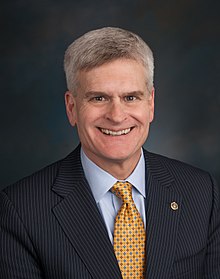Louisiana is on the verge of a transformative economic boom, thanks to the leadership of U.S. Sen. Bill Cassidy. Carbon capture, a critical component of our future energy infrastructure, is not just a tool for environmental protection—it is also poised to attract billions of dollars in new industrial investments to the state. With over $20 billion in announced carbon capture projects in Louisiana, the state stands to gain approximately $90 million in permanent jobs and $80 million in local tax revenue. Sen. Cassidy’s efforts have positioned Louisiana as a leader in the low-carbon economy, creating a win-win scenario for both the environment and economic development.
Carbon capture is an essential part of decarbonizing industries, and Louisiana is uniquely situated to take advantage of this opportunity. The state's geography, with its extensive industrial base and geology suitable for carbon sequestration, makes it a natural hub for this technology. As industries and governments worldwide look for ways to reduce carbon emissions, Louisiana is ready to serve as a model for the future.
Sen. Cassidy has been instrumental in bringing federal resources to the state, securing significant funding through the Infrastructure Investment and Jobs Act (IIJA). This funding has enabled several major carbon capture projects to move forward. For example, the Direct Air Capture (DAC) hub, known as Project Cypress, located in Southwest Louisiana, will receive up to $603 million in federal funding. This project alone is expected to create 2,300 jobs and remove one million metric tons of CO2 annually from the atmosphere.
In addition to Project Cypress, Louisiana is home to numerous other carbon capture projects, such as the $46.8 million in grants for CO2 storage initiatives in the Louisiana Chemical Corridor and offshore storage hubs near Monkey Island. These projects are not only creating immediate jobs but also laying the foundation for a long-term economic boom as companies look to invest in cleaner, more sustainable technologies.
His leadership has also fostered collaboration with academic institutions like Louisiana State University (LSU), ensuring that the state remains at the forefront of energy innovation. The National Science Foundation (NSF) is partnering with LSU and several other leading state universities, including the University of Louisiana at Lafayette, McNeese State University, and Southern University, on a groundbreaking initiative to explore the use of carbon capture technologies and hydrogen as alternative fuels.
This research provides $160 million in critical funding to develop next-generation, low-carbon technologies. Recently, FUEL connected Louisiana industry to NewLab entrepreneurs throughout the country in an effort to spur innovation and drive business growth through carbon capture. FUEL’s goals extend beyond technology and research. A portion of the grant funding will go to supporting job creation through workforce development programs that can reach all corners of our state.
The importance of carbon capture for Louisiana’s economy cannot be overstated. Not only are these projects creating thousands of good-paying jobs, but they are also generating innovation, new business ventures, and significant ripple effects throughout the state economy. As the global economy shifts towards low-carbon markets, industries that rely on carbon capture will continue to grow, bringing even more investment and opportunities to the state—including increasing demand for low-carbon steel, sustainable, lightweight plastics, and power for data centers.
Louisiana’s future as an energy leader is bright, and much of that success can be attributed to Sen. Cassidy’s efforts. His work to secure federal funding and promote carbon capture technology has set Louisiana on a path to economic growth, ensuring we remain relevant in the increasingly global energy market. Thanks to Sen. Cassidy’s vision and leadership, Louisiana is poised to lead the way in the energy transition, creating a cleaner, more prosperous future for all.








